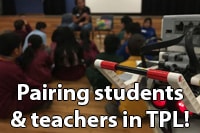
Working together rocks!
As much as teacher professional learning sessions are highly useful, its still not quite the same as being in the classroom itself. The ability to see students interact with a lesson is often times the BEST way to see if a given lesson will actually work or not and lately we couldn’t agree more! Recently we worked with Condell Park Public School in Sydney, who had gone to a massive effort to arrange teachers and students from surrounding schools to join us for a full day of Lego Robotics TPL. With a pair of teachers and three students per school, the hall at Condell Park Public School became a vibrant place as kids & teachers from different schools worked together on shared problems and had a blast!
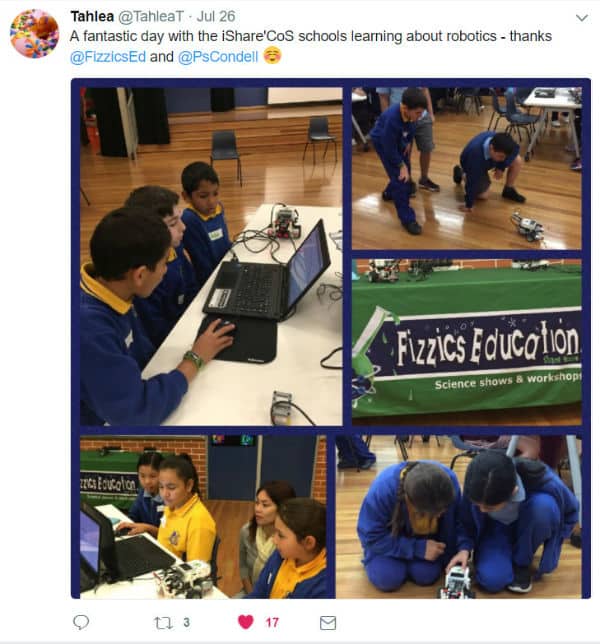
Robotics TPL at Condell Park Public School July 2017
The shared TPL with students & teachers was aimed at creating a robotics brains trust in each school, a hive mind of ICT understanding that would enhance the existing inter-school professional learning network across the schools that would, in turn, enrich each school community. In only a few short hours everyone present agreed that having both teacher and students in the same TPL session was highly valuable and one that is certainly worth repeating.
So, what were the benefits of the teacher/student TPL robotics session?
- Teachers could see how students interact with the lesson content, whereby not only did they see how students engaged with the robotics challenges but also they could hear what questions were raised by each student and thereby teachers could begin to create lesson adaptations that would suit their particular classroom.
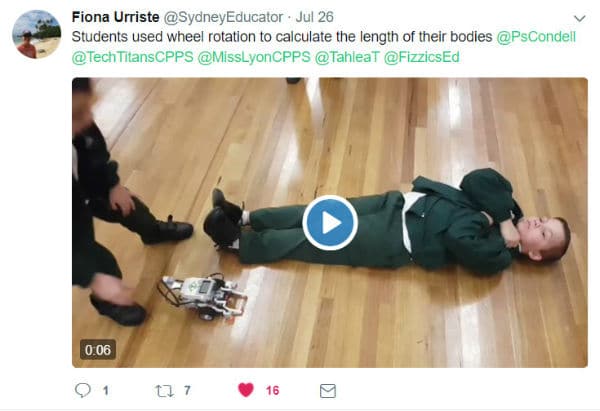
Robot measuring student at robotics TPL July 2017 - Having multiple teachers on hand to help students through the ICT challenges meant that teachers were able to see which areas of software worked really well, how each teacher worked on a given problem plus the students themselves could benefit from different styles of instruction.
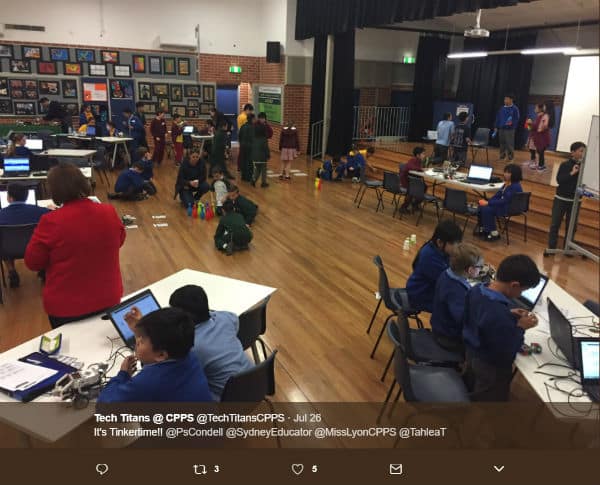
Working together! - Through choosing particular students to join in the TPL session the day could be crafted to cover gifted and talented groups, ESL groups, students experiencing difficulties in a topic and more. Put simply, a student/teacher paired TPL session allows teachers to test assumptions on what might work in the classroom.
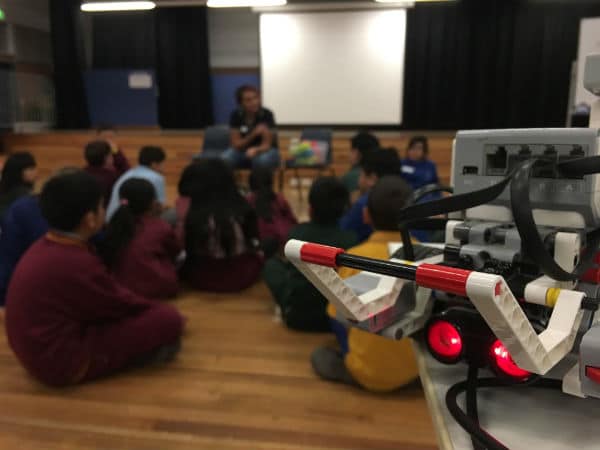
EV3 Robot at Condell Park TPL session - By organising teachers and students from other schools to visit your TPL session offered the opportunity to cross-pollinate ideas and solutions to ICT problems across the schools plus teachers could organise new collaborations and relationships on the fly too!
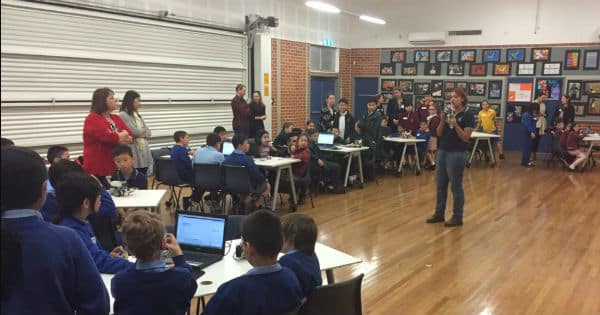
Holly speaking with the group – photo by Tech Titans at CPPS - The students got the benefit of meeting and collaborating with students from other schools which is a critical skill in their future lives!
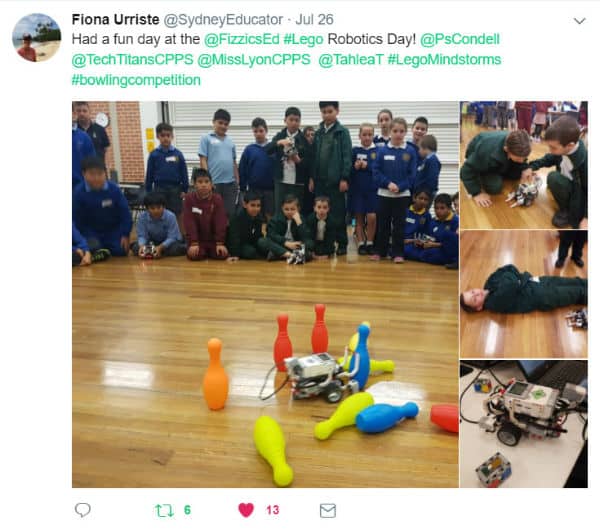
- Having time to mix from teachers from other schools is always highly valuable!
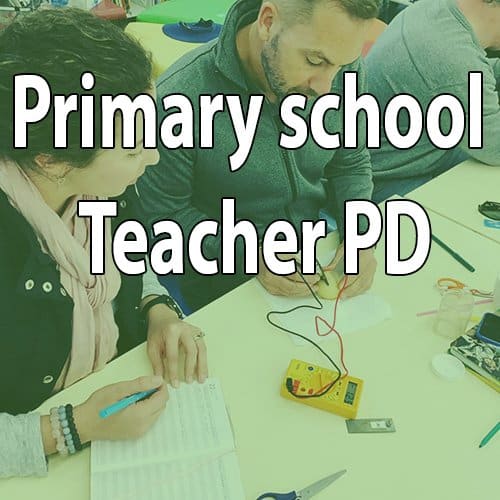
Find out more about PD run by Fizzics Education
So, with this in mind… what steps could you take to try this shared student/teacher TPL?
- Reach out to local schools to create your professional learning network (PLN).
- Agree on the goals of what all teachers as a group would like to achieve for their respective schools. With the short window of the day, it much better to create a deeper knowledge of a narrower area than trying to cover too much content.
- Determine how your students might be involved and make sure this is they’re aligned with your PLN’s group goals.
- Work out your shared school budgets and timelines that would be needed to make a shared TPL session work. Consider a rolling schedule where each school blocks out time in their school hall to cover a variety of sessions throughout the year.
- Seek out teacher professional learning opportunities that would suit your PLN’s needs. If something doesn’t exist on paper now, work with the provider to create something new!
- Once booked in, don’t forget to organise some simple catering items from your school canteen (an opportunity for older students to help here!).
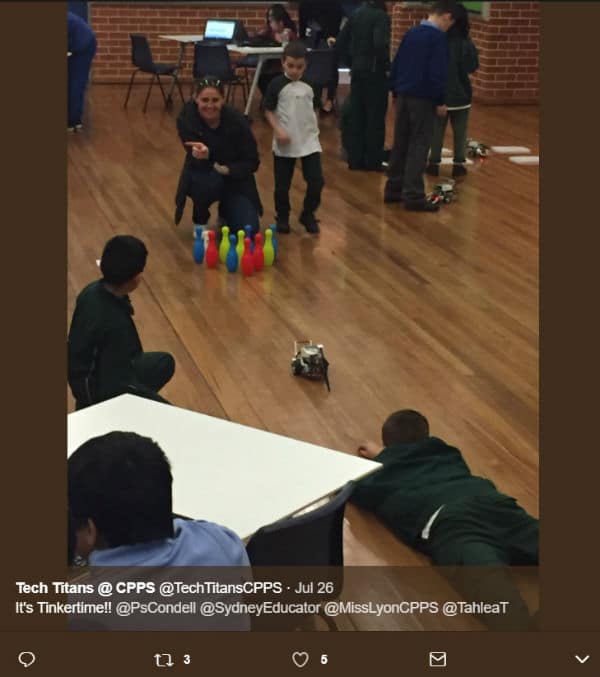
Can they knock over the pins???
The opportunity for students and teachers to learn together is certainly one that is waiting to be explored. Whilst there is a little bit of extra effort to make it happen, the results are certainly worth it!
Happy teaching,
Want some free science experiments for the classroom?

NEW Primary science teaching book!
“Be Amazing! How to teach science, the way primary kids love”
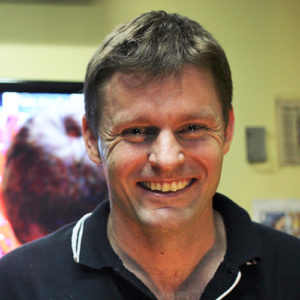
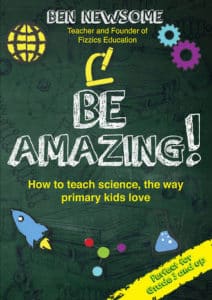

























Comments